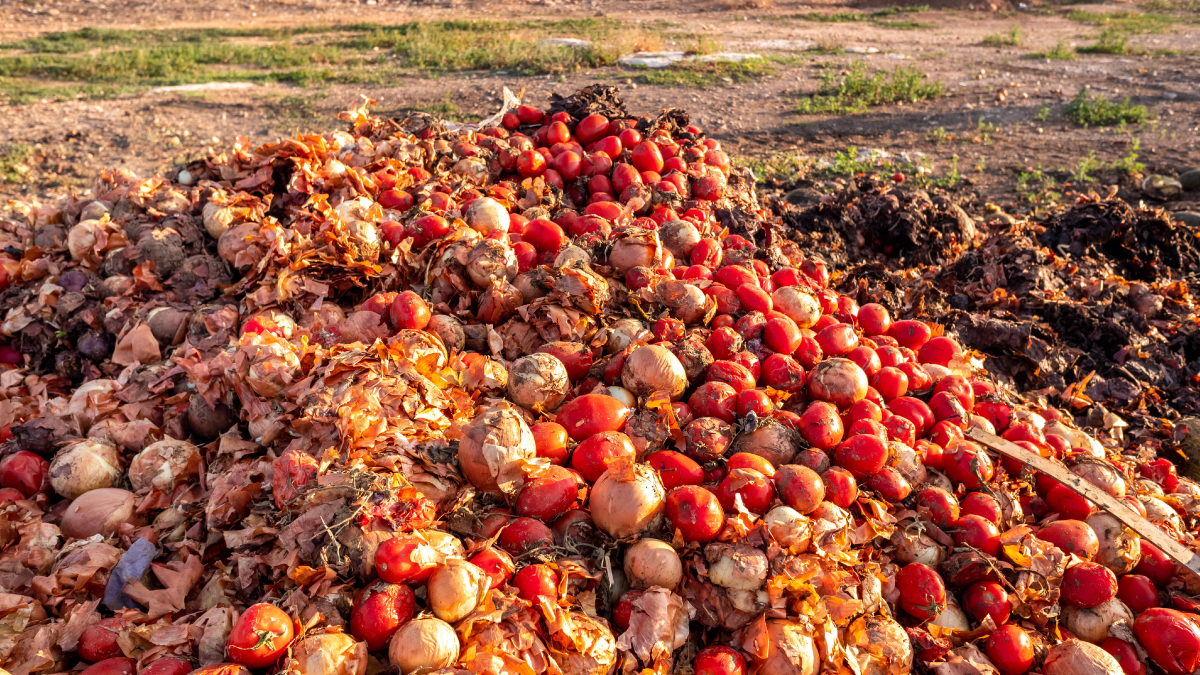Around one third of the food produced is never eaten, even as 10% of the world population faces hunger each day. The resources used, including water, land and energy, also go to waste.

Vegetables thrown rotting in a landfill. © Joaquin Corbalan
The number of people suffering from hunger reached up to 820 million in 2020, almost 10% of the world population, according to the United Nations’ latest estimates.
Yet experts agree that more than enough food is produced to feed everyone on the planet. Tragically, around one third of it is never eaten – Around 14% is lost between harvest and retail and another 17% goes to waste in homes, restaurants and stores.
U.N. economists value the loss at around $1 trillion a year.
“The staggering statistics on food loss and waste remind us that we all, as consumers, have an important role to play in the fight against hunger,” says Teresa Moreira, head of UNCTAD’s competition and consumer policies branch.
This year the world marked International Day of Awareness of Food Loss and Waste for the second time. Celebrated on 29 September, the day is an opportunity to call for action by all stakeholders – consumers, producers, retailers, governments and civil society organizations – to tackle food loss and waste in supply chains and households.
Environmental impact
“Food loss and waste also has consequences in the use of resources, such as water, land, energy and human labour – which are also wasted.”,” Ms. Moreira says.
In fact, around 28% of the world’s agriculture area and 8-10% of greenhouse gas emissions are used annually to grow food that ends up in the bin, according to the Geneva Environment Network.
“To improve food security and combat climate change and environmental degradation, we need to maximize the use of the food we produce,” Ms. Moreira adds.
Sustainable consumption to fight food loss and waste
An important way to get the most out of the food produced – and the resources used – is to make consumption more sustainable.
Improving consumers’ awareness of how their choices and behaviours contribute to food loss, through information and education, is therefore key to helping people make informed choices each day, conscious not only of their rights as consumers but also of their responsibilities as global citizens.
The promotion of sustainable consumption patterns is one of the legitimate needs recognized by the United Nations Guidelines for Consumer Protection, a valuable set of principles for setting out the main characteristics of effective consumer protection legislation, enforcement institutions and rules.
UNCTAD, as the focal point for consumer protection within the UN system and the guardian of the guidelines, has been drawing the attention of member states and stakeholders – such as consumer associations and environmental organizations – to the role consumer policy can play in contributing to sustainable consumption.
First adopted in 1985, the guidelines were expanded in 1999 to introduce the topic of sustainable consumption (currently Section H) and revised in 2015, conferring UNCTAD a formal mandate for consumer protection policy.
UNCTAD’s Manual on Consumer Protection and the report Achieving the Sustainable Development Goals through Consumer Protection address the role of consumer protection policy in achieving the Agenda 2030 for Sustainable Development. The publications recognize the importance of mobilizing consumers to adopt sustainable consumption patterns through information and education programmes.


